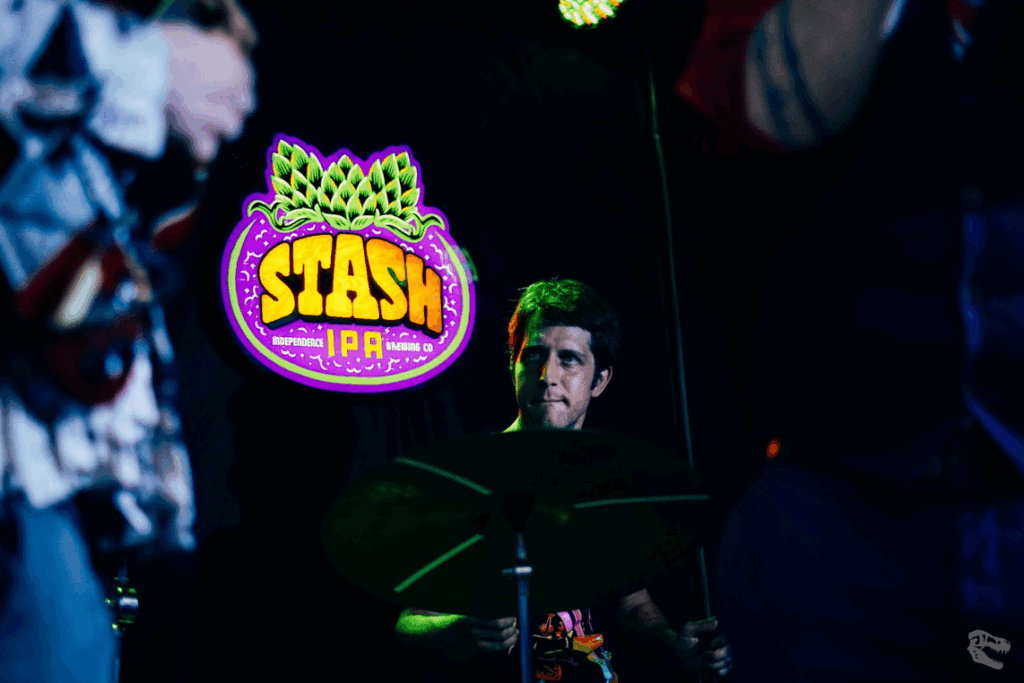
Photo: Tina Beigelbec
Aaron Parks – I started playing drums in middle school band when I was 11 in Houston, TX, and started gigging with my dad about a month after I received my first real drum set. That was when I had just turned 13. I had been around music my whole life and my parents planted the seed of being a drummer by getting me a tiny kit when I was 3. So throughout high school I had played with a bunch of different bands with my peers – we played jamband, blues, classic rock, metal, original stuff, and whatever else we wanted to try to play. It wasn’t until I moved to Austin to go to UT that I discovered how awesome jazz was. I auditioned for jazz combos (although I was majoring in mechanical engineering), and was fortunate enough to get into one every year! I learned so much about form, styles, technique, tone, groove, breathing, posture, and all of the other elements that go into being a better musician. The last year that I was there, I took lessons with Brannen Temple and he really paved the way for me to lay a solid foundation down on my drumming. So ever since, I’ve been learning, gigging, writing, recording, and practicing to continue the growth of that aspect of my life. I’ve been a participant of jazz, experimental, progressive rock, fusion, singer-songwriters, cover bands, country, my own music, and other stuff that I’m sure I’m leaving out.
COTFG – What are some of the influences on your recent work? Musical or otherwise.
Aaron Parks – Well, so my most recent work(s) was a project that I decided to do during the pandemic. I wanted to record an album every month to work on my recording/mixing techniques and song-writing in general. Practicing for no gigs felt a bit empty, so it felt like a more productive use of my time at the beginning. My goal was to record something every day. And I did for awhile! I had been listening to Shugo Tokumaru, Bjork, Fiona Apple’s album – “Fetch the Boltcutters“, Tom Waits, Hermeto Pascoal, and other artists that use weird noises in a musical way. And they inspired me to really search for sounds and write songs with them. But honestly, everything has been an influence. Like birds, or squirrels. They are endless entertainment and their songs and noises have so much nuance. Or other sounds that are around us – cars, wind, AC units, traffic lights, chainsaws. I can’t even think of any noise that I’ve listened to and haven’t put a musical lens on at this point. I will say that Nate Smith has been a huge influence on my drumming lately, but I always go back to Art Blakey, Elvin Jones, Roy Haynes, and that list can go ON and ON.
COTFG – What have you been listening to lately?
AP – One of my favorite song-writers and musicians right now is definitely Madison Cunningham. But, honestly, I’ve been digging just putting on 91.7 – either KOOP or KVRX, I love both – and it’s great because I never know what I’m going to hear! “Natty Dread” the Marley album, I can’t get enough of that. I’ve been listening to Bjork’s catalog. I checked out all of Forq’s albums. Eric Dolphy, Roland Kirk, the new Mingus live album that came out recently. I always have to come back to Monk, and Coltrane. Honestly, I listened to SO much Monk AND so much Coltrane throughout the pandemic.
COTFG – What does “avant-garde” and/or “experimental” mean to you?
AP – If you are writing a song that conveys a feeling or emotion, and you are being creative with your instrument/sound selection, you are making experimental music. To me, experimental music should be an experiment – no boundaries. It can be as abstract as an emotion, or it could be narrative and tell an entire story. It could be all instrumental, it could be all acapella. It could be complex, or simple. I guess the line of “experimental” vs. “conventional” to me is that experimental music does not sound like anyone else’s music and isn’t trying to be anyone else’s. It’s your experiment. I would even go as far as to say someone like Billie Eilish’s music is experimental – with the way that they found sounds and produced them. It’s just very well-organized experimental music. I’m sure others would beg to differ. I also think that Monk’s music is very experimental, even though his music is well-regarded as some of the most classic jazz ever.
You can hear Aarons work on his bandcamp and find out more about him on his website. Links by COTFG.